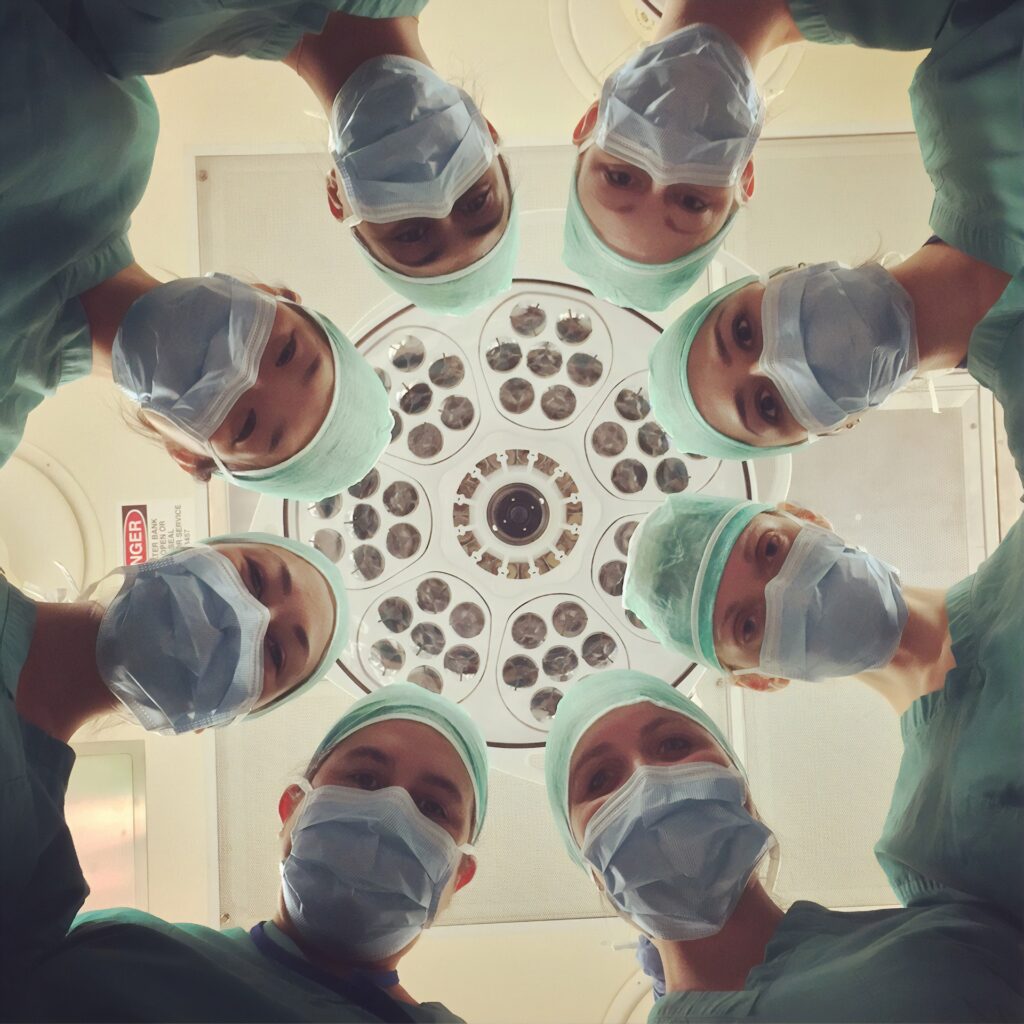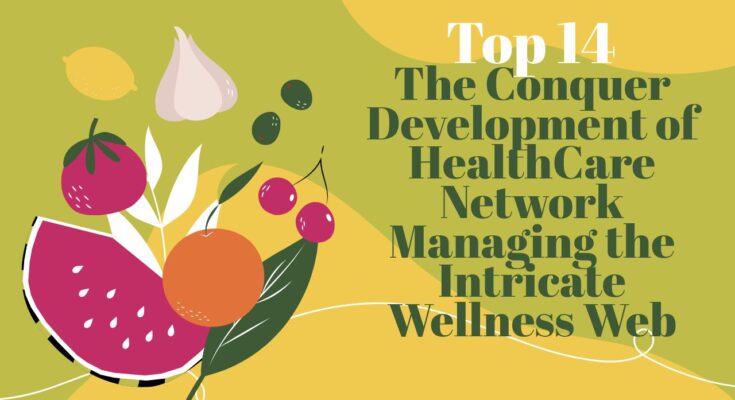Healthcare networks are vital in the ever-changing healthcare profession
Influencing how people seek and receive medical care. This piece explores the development of the Health Care Network, highlighting its importance, difficulties, and revolutionary effects on providing healthcare services.
Knowing Health Care Networks
Hospitals, clinics, doctors, insurers, and allied health professionals are interconnected organizations comprising healthcare networks. To improve and streamline patient care coordination, these networks guarantee a more thorough and practical approach to health management.
The Importance of Interdependence
A primary benefit of healthcare networks is their capacity to promote cooperation between various healthcare organizations. Healthcare practitioners in a network can work together more effectively by sharing electronic health records (EHRs) and communicating in real-time This improves patient outcomes, lowers errors, and raises the standard of care.
Health Care Networks Manage Population Health
Technological advancements greatly influence how healthcare networks are shaped in the future. The ways that healthcare data is exchanged, stored, and analyzed are changing dramatically thanks to blockchain, telemedicine, and artificial intelligence. These advances promote a more robust and adaptable healthcare ecosystem by improving the security and efficiency of healthcare networks.
Health Care Networks’ Function in Population Health Management: Healthcare networks are critical in tackling population health issues by facilitating proactive and preventive healthcare approaches. These networks can detect patterns, distribute resources effectively, and carry out focused interventions to enhance the general health of communities using data analytics and population health management initiatives.
Providing Patient-Centric Care
By encouraging improved communication and information exchange among healthcare practitioners, healthcare networks prioritize a patient-centric approach. Because of this interconnection, a patient’s medical history and requirements may be understood more comprehensively, resulting in treatment programs that are individualized and focused.
Obstacles in Developing Sturdy Health Care Networks
Creating and sustaining efficient healthcare networks presents difficulties despite their many advantages. The seamless operation of these networks depends on addressing concerns like data security, regulatory compliance, and the interoperability of various health information systems.
Healthcare Networks An Understanding of the Fetter
In the context of the fetter health care network is any element or barrier that prevents the system’s expansion and ideal operation. Administrative snags, technical constraints, poor infrastructure, or even a lack of coordination and communication between healthcare professionals could be among them.

Bottlenecks in the administration
Any HealthCare Network core is its administrative procedures. On the other hand, bureaucratic intricacies can function as roadblocks, inhibiting the execution of creative solutions, slowing down decision-making procedures, and making resource allocation more difficult.
Limitations of Technology
Healthcare networks may be limited in an age where technological innovation rules the day if they do not adopt and adjust to new technology. Efficient and patient-centred care delivery might be hampered by antiquated systems and resistance to integrating new alternatives.
Infrastructure Deficits
Sufficient infrastructure is essential for the fetter health care network to run smoothly. Inadequate facilities, a shortage of necessary medical equipment, and geographic differences may restrict the accessibility and calibre of healthcare services.
Communication and Teamwork Difficulties
Effective communication and collaboration among fetter health care networks are essential to deliver comprehensive and coordinated care. Inaccuracies in these domains may result in inconsistent patient outcomes, duplicate testing, and fragmented care.
Why a Professional Health Care Network Is Important
It is impossible to overestimate the significance of a robust professional healthcare network in today’s quickly changing healthcare environment. Collaboration, information exchange, and smooth communication between healthcare professionals are more critical than ever as the sector continues to face previously unheard-of difficulties. This article examines the importance of a professional healthcare network and how it will influence healthcare in the future.
Creating Linkages for Joint Medical Care
Physicians, nurses, specialists, and other allied health workers are just a few healthcare stakeholders that a Professional Health Care Network connects. To improve the general standard of healthcare services, experts can work together on patient care, exchange ideas, and share knowledge through this network. Improved patient outcomes result from a holistic approach to patient care, supported by the ability to communicate effectively between various specializations and healthcare locations.
Improving Specialized Knowledge Accessibility
Access to specialized knowledge can make a massive difference in healthcare’s broad and complex realm. A Professional Health Care Network makes it easier for medical professionals to communicate with experts, allowing for prompt consultations and expert perspectives. This guarantees that patients receive the most appropriate and efficient therapies in addition to improving diagnosis accuracy. The network serves as a virtual hub for tackling intricate medical problems by uniting experts with various backgrounds and specialities.
Cracking the Code for Better Health Care Networks
Simplifying Bureaucratic Procedures
Reducing bottlenecks can be achieved by using lean and efficient administrative operations. Allocating resources and making decisions can be streamlined by using technology for data management, task automation, and creating a transparent culture.
Accepting Technological Advancements
Electronic health records (EHRs), artificial intelligence, and telemedicine are cutting-edge technologies that fetter healthcare networks must embrace and use aggressively. These developments can simplify healthcare delivery, increase patient engagement, and improve diagnosis accuracy.
Infrastructure Investments
Making targeted investments is necessary to close infrastructural gaps. Governments, healthcare organizations, and the private sector must work together to facilitate the establishment of contemporary, well-equipped healthcare facilities, especially in underprivileged areas.
Encouraging Interaction and Cooperation
fetter health care networks can work together more effectively by implementing communication platforms and collaborative technologies. Standardized communication procedures, shared patient information, and interdisciplinary teamwork can improve coordination and lower errors.
Improving Communication and Arrangement of Information
Healthcare information sharing must be done as efficiently as possible, and a Professional Health Care Network is essential to making this happen. The network allows patient data, treatment plans, and diagnostic results to be shared easily, from electronic health records to real-time communication tools. This reduces the possibility of mistakes and oversights while enhancing coordination among professional healthcare networks. To deliver efficient and patient-centered treatment, timely access to complete and correct patient information is essential.

Adjusting to Developments in Technology
Technology’s incorporation into healthcare has changed how medical professionals provide and receive care. Technology is embraced by Professional Health Care Networks, which provide a framework for digital health, telemedicine, and remote monitoring. This flexibility guarantees that medical professionals remain at the forefront of advancement, offering patients cutting-edge, effective, and convenient healthcare alternatives.
Handling Difficulties in the Provision of Healthcare
Increasing expenses, a lack of workers, and changing regulatory environments are a few difficulties facing the healthcare sector. A Professional Health Care Network allows medical professionals to discuss these issues together. The network gives professionals the tools to collaborate, exchange best practices, plan solutions, and support laws that improve patient care.
Conclusion
Healthcare networks are a remarkable force for change in contemporary healthcare’s complex web, altering how services are delivered and placing the patient at the centre of care. The networks ‘ continuing evolution promises a healthier and more connected future for people and communities alike, fueled by technical advancements and a dedication to collaboration.




